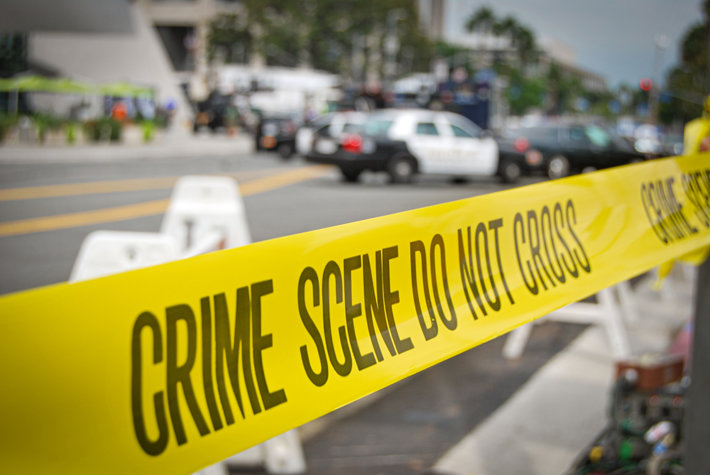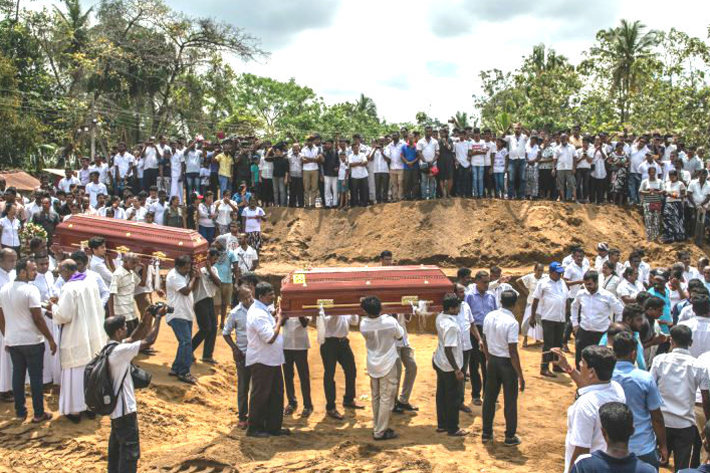The fraternity is growing. The brotherhood of peace-lovers brought down by violence added a new member last month: Los Angeles Bishop David G. O’Connell, an individual who devoted his public ministry to advocate for the forgotten of his city, those who had been marginalized and ignored—the poor, the homeless, the immigrants and gang members.

Not surprisingly the bishop, who last month was found dead in his home from a shotgun blast, was himself an activist against gun violence since the day 23 years ago when he discovered two blood-drenched bodies in a car parked in the Winchell’s doughnut house next door to his church. In all, six people from Father O’Connell’s neighborhood were to die over the next two weeks, four of them his parishioners.
“I thought, ‘You just saw two dead bodies. What are you going to do about it?’” he said. “I want the people to ask themselves if their faith gives them courage to do something. You have to turn that anger into action.”
Swiftly he gathered 5,000 families from his and another church, organizing them into 91 discussion groups using the upcoming feast of the Virgin of Guadalupe, to grieve, discuss and devise solutions. One question discussed was, “If the Virgin Mary walked down the street where you live, what would she see? What would she ask you to do to change it?”
Liaising with law enforcement, coaxing Black and Latino families to work together, O’Connell had already found his calling as a builder of bridges and friend to the disenfranchised. Eight years earlier he provided a safe space for dialogue in the wake of the L.A. riots following the Rodney King beating, bringing shop owners, residents, city fathers and activists together.
Over the years of his ministry he could often be seen driving the homeless to hideaway camps where they were offered hot showers, food and a sympathetic ear, occasionally paying the utility bill for parishioners who couldn’t, and on one occasion insisting that a struggling nonprofit take his salary for a year so that it could continue its work for poor, disabled and abandoned children. He would be fine, he said, as long as he had a roof over his head and food to eat.
Approachable and easy to talk to, the Bishop spoke fluent Spanish, as well as Latin, Gaelic and English.
“He was a friend of souls,” Monsignor Jarlath “Jay” Cunnane said at O’Connell’s funeral Mass at Cathedral of Our Lady of the Angels in downtown Los Angeles. Cunnane said O’Connell’s friendship stretched more than half a century. They were seminary students together and still dined together each week.
“David did soul work,” he said. “He spoke to the soul. He healed souls. He brought peace to souls.”
Bishop O’Connell devoted his ministry to caring for individuals and families affected by gang violence, poverty and neglect. Regarded as a peacemaker between rival gangs, he was known as Bishop Dave, and had worked in the L.A. diocese for 45 years after studying for the priesthood in his native Ireland.
Archbishop José H. Gomez of Los Angeles expressed the feelings of many, saying that he was shocked and had no words to express his sadness. O’Connell was a “peacemaker with a heart for the poor and the immigrant,” Gomez said, “and he had a passion for building a community where the sanctity and dignity of every human life was honored and protected.”
One of the 3,000 attendees at Bishop O’Connell’s funeral was his nephew, also named David, who said, “He taught us that if you have the capacity to help someone, you should do it. I can hear him so clearly in my mind saying, ‘Ah, that’s no problem; I can do it.’ All he wanted to do was make things easier for everyone else and he never asked for a single thing, ever.”
The handyman husband of Bishop O’Connell’s housekeeper admitted to committing the crime. Though the motive is unclear, the incalculable damage to the community is not. A giant has fallen and giants are hard to replace.
_______________
From its beginnings, the Church of Scientology has recognized that freedom of religion is a fundamental human right. In a world where conflicts are often traceable to intolerance of others’ religious beliefs and practices, the Church has, for more than 50 years, made the preservation of religious liberty an overriding concern.
The Church publishes this blog to help create a better understanding of the freedom of religion and belief and provide news on religious freedom and issues affecting this freedom around the world.
The Founder of the Scientology religion is L. Ron Hubbard and Mr. David Miscavige is the religion’s ecclesiastical leader.
For more information visit the Scientology website or Scientology Network.


